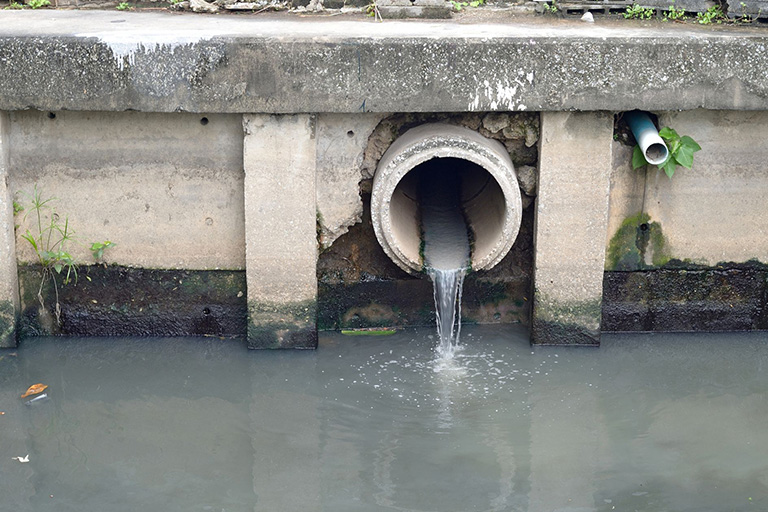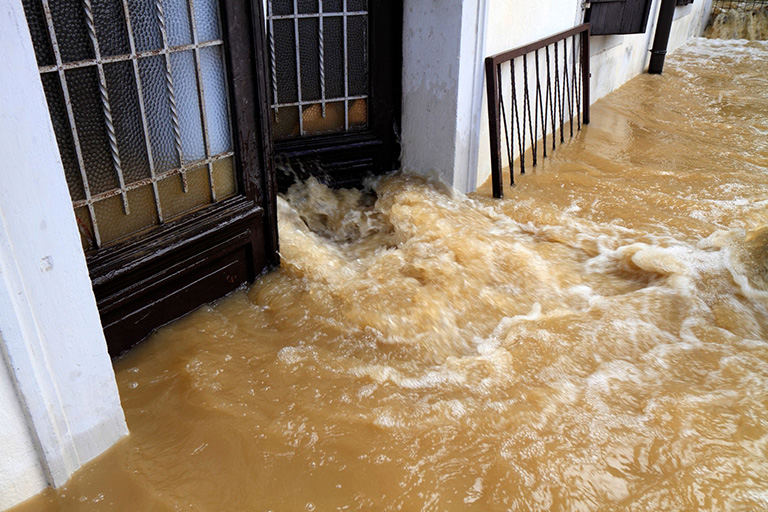Posted on: Jun 19, 2024
ProWaterUser2020

Sewer backups happen when the city’s sewer lines are clogged, cracked, or overflowing due to heavy rain. Installing a backwater valve prevents backups and basement flooding, keeping your home safe and dry.
Prevent water damage in your foundations with this simple yet effective plumbing device. This guide answering “What is a backwater valve?” and more will tell you everything you need to know, including why you should have a backflow valve at home.
A backwater or backflow valve is a one-way valve with a flap that only lets water flow out of your home. The flap stops sanitary sewer backup from flowing back into your plumbing system and coming out of a floor drain in the basement.
A city’s main sewer line tends to overflow or clog due to heavy rainfall or sanitation backup, causing the sewage water to flow back towards your home. Homes without a backflow valve experience basement flooding during storms, putting their building foundation at risk of damage. Having a backwater valve installed can prevent this and keep your basement dry.
Plumbers and contractors install a backflow valve in the basement; it’s located under the floor and connects to the main sanitary sewer. It can also be found outdoors like in the front or backyard so it stays close to the city sewer lines.
Related: 6 Areas of Your House That Need Waterproofing
Many mistake a backflow valve for a backflow preventer since they both let water flow in one direction. However, these are starkly different and can’t be interchanged.
We already know a backflow valve in the basement prevents sewage water from returning. A backflow-preventer-sewer-line connection protects your water supply from cross-contamination. This plumbing device prevents the reversal of water flow and keeps non-potable water and contaminants out, keeping your water clean.

Image Source: Canva
When a valve’s cover becomes loose or cross-threaded during a flood, it can fail and cause backflow. Waterproofing your basement is a good preventive measure against this. It protects your walls and floors from water damage, saving you from cracked walls, sagging floors, and other issues brought by the flood.
Waterproofing homes is one thing, but installing a backwater valve is another. If you still don’t have a backwater valve, here are four reasons why you should get one.
Ontario municipalities have varying rules about backwater valves. For instance, the City of Ottawa requires new single, semi-detached, row houses, and townhome dwelling units to have a backwater valve. In Hamilton, residents are encouraged to participate in City Flooding Assistance Programs to make homes safe from flooding.
We highly encourage homeowners to check their local by-laws and regulations about installing a backflow valve in the basement; it can save you from paying costly penalties.
In 2023, Burlington, Halton Hills, and Oakville had a projected 50 mm of rain. This made residents worried about intense flooding since rivers and streams nearby are at risk of overflowing.
Worrying about flooding non-stop can make you restless and paranoid when the rainy season comes. Installing a backflow valve in your home could give you peace of mind knowing you’re prepared for the rainy season.
Related: Understanding Basement Drainage Systems

Image Source: Canva
A flooded or leaky basement means dirty surroundings, damaged furniture, and short-circuited electronics. Save yourself from the stress and costs of repairing your belongings by installing a backwater valve.
A sump pump collects water accumulating underground near your home’s foundation and drains it once its pit has triggered the float switch. This device is great for preventing water damage, but it can be ineffective without proper maintenance. When it fails during a public sewage overflow, a backflow valve can keep backup water out of your home.
Understanding what is a backwater valve leads to further questions related to its effectiveness. Like all things, it also needs maintenance to remain in tip-top shape. Neglecting its care may allow debris to get stuck in the valve and let indoor flooding happen. When it does, you need to be prepared.
Sewage backup can seep into the cracks in walls and floors, causing further damage and structural imbalance. Avoid these issues altogether when you let Pro Waterproofers, Ontario’s leading waterproofing solutions provider safeguard your home.
We service homes in Burlington, Oakville, and Hamilton. Call us at 905-963-3333.
If You Have Any Emergency Waterproofing Need, Simply Call Our 24 Hour Emergency Service Team
 Call Us Now : (905) 963-3333
Call Us Now : (905) 963-3333